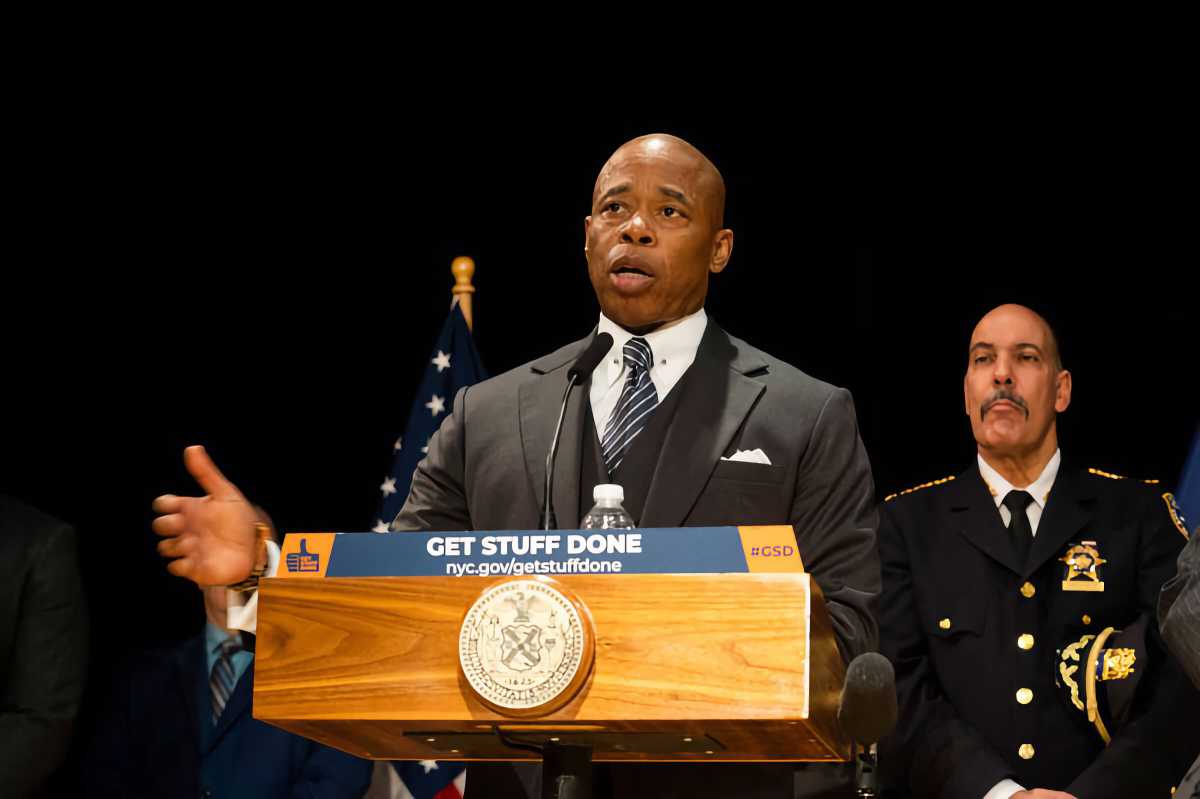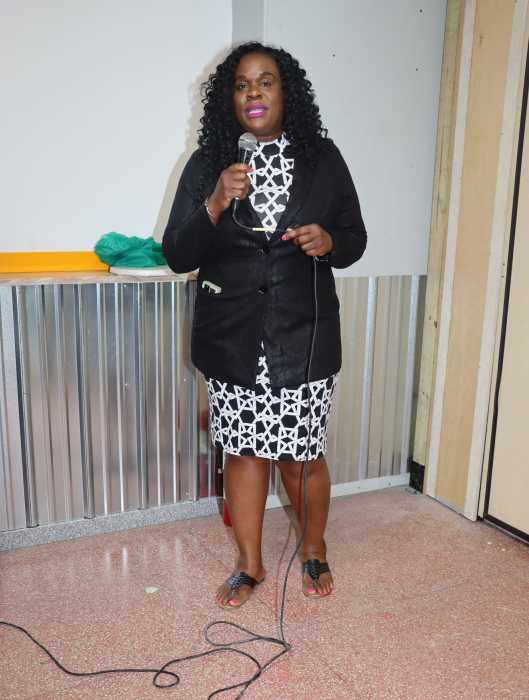With the unrelenting influx of Caribbean and other migrants crossing the southern border of the United States and travelling to major cities, such as New York City and Chicago, Mayor Eric Adams and the Mayor’s Office of Immigrant Affairs (MOIA) Commissioner Manuel Castro on Monday disclosed that the city will host the Eighth Annual “Cities for Action.”
Officials say many of the immigrants arriving in New York City from the southern border are nationals from Venezuela, Cuba, Haiti and Guatemala.
Adams told a press conference that representatives from over 20 cities are expected to participate in the two-day event.
“Since the founding of Cities for Action in 2014, immigration issues have only become more urgent. And, in the 20 months since we began managing a national asylum seeker crisis almost entirely on our own, cities have been the ones to step up and lead the way,” the mayor said.
“As we continue to tackle the current humanitarian crisis, New York City is proud to host this convening of municipal leaders who are working on the frontlines and advocating for the federal government to finish the job they started by providing more financial and logistical support to cities across the country,” he added.
“As a city of immigrants, we look forward to continuing the work with our municipal partners to advance compassionate solutions on-the-ground and immigrant-inclusive policies nationwide,” Adams continued.
Castro said he looked forward to strategizing with other municipal leaders.
“It’s incredibly powerful to have so many city offices of immigrant affairs from across the nation come together in New York City this week,” he said.
“In a time where cities are leading the way in responding to the asylum seeker humanitarian crisis, it is timely we are coming together to strategize and advocate together on behalf of our cities and our immigrant communities,” he added.
Adams said 23 jurisdictions from across the nation will participate in the event. They include: Los Angeles, San Diego, San Francisco, San Jose, Oakland, and Santa Clara Counties, CA; Aurora and Denver, CO; Miami-Dade County, FL; Atlanta, GA; Chicago, IL; Louisville, KY; Boston and Somerville, MA; Baltimore City and Baltimore County, MD; Saint Paul, MN; Philadelphia and Pittsburgh, PA; Austin, Houston, and El Paso County, TX; and Seattle, WA.
The mayor said more than 140,000 migrants and asylum seekers have converged on New York City, seeking shelter, since the crisis started.
He said his administration has adopted “fast and urgent action” in addressing the humanitarian crisis, with smaller-than-expected aid from the federal government.
Meantime, as Republicans in the US Senate continue attempts to block aid for Caribbean and other migrant and asylum seekers, the New York Immigration Coalition (NYIC) is appealing to lawmakers in the nation’s capital to support “critical” asylum protections and “push back against the Republicans’ radical agenda.”
Recently, US immigration authorities reported an influx of Chinese migrants crossing the border in attempting to seek asylum in the US.
NYIC, an umbrella policy and advocacy organization that represents over 200 immigrant and refugee rights groups throughout New York, prides itself in serving “one of the largest and most diverse newcomer populations in the United States.”
NYIC’s Executive Director Murad Awawdeh noted on Tuesday that US Senate Republicans, in their weeks-long budget negotiations on President Joe Biden’s emergency supplemental funding request to support the war in Ukraine, are unrelenting in attempting to block aid to Caribbean and other migrants and asylum seekers, “unless the budget includes extreme changes in immigration policy, including barriers to seeking asylum in the United States, humanitarian parole and enforcing stricter border policies.”
“As cities across the country continue to welcome newly-arrived asylum seekers, it is crucial that lawmakers in Washington support critical asylum protections and push back against the Republicans’ radical agenda, including cutting back on humanitarian parole, resuming construction on parts of the southern border wall, reinstating remain in Mexico, as well as the safe third country ban–all of which would ultimately result in the end of our asylum system,” Awawdeh told Caribbean Life.
“There is no reason to include increased use of inhumane policies like family separation as part of a foreign budget package, except pure cruelty,” he added. “Instead, lawmakers must expand effective and humane measures that will alleviate the pressure from the southern border, allow for more secure processing of asylum seekers, and ensure that localities like New York City, which have received thousands of new arrivals, are able to support and integrate them into our communities.
“After embarking on a treacherous journey to the United States, immigrant communities deserve to feel protected and thrive in our country to live out their American dream,” Awawdeh continued.
In his continuing efforts to manage, as best as he can, the expanding asylum seeker crisis, Adams recently launched the broadening of the Asylum Application Help Center.
With funding from New York State, Adams said he will open two new satellite sites in aiding asylum seekers in submitting applications for asylum, Temporary Protected Status (TPS) and work authorization.
Last month, the mayor launched the city’s first satellite sites for immigration application assistance in Harlem and Lower Manhattan.
“While we continue to call for a national strategy to solve a national crisis, New York City continues to do its part to support asylum seekers,” he said. “For over a year, we have asked the federal government to put forward a resettlement strategy, expedite work authorizations for asylum seekers, and provide New York City with much needed and meaningful financial support.
“In the absence of that national strategy, New York City continues to lead — building out the legal and resettlement infrastructure needed to address this crisis,” the mayor added. “We hope the federal government will join us in these efforts and finish the job they started.”
Since its launch this summer, bolstered by aid from state partners, Adams said the city’s help center has supported the filing of over 7,200 asylum applications, about 2,900 work authorization applications and nearly 2,900 TPS applications.
He said New York City has also helped Caribbean and other asylum seekers file over 3,100 work authorization applications during two clinics hosted in partnership with the federal government and city-based nonprofits, totaling more than 16,000 asylum, work authorization and TPS applications.
As he continues to prioritize helping asylum seekers live independently, “without significant or timely state and federal assistance,” Adams said he plans to proceed, in January 2024, with a 20 percent reduction in spending on the migrant crisis in his Fiscal Year 2024 Preliminary Budget.


























